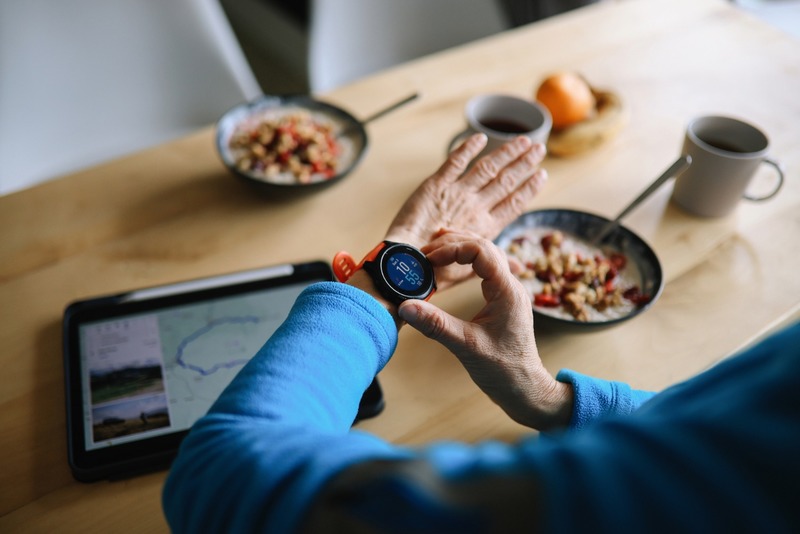News
Elevate Your Health Now: The Best Defense Against the Next Pandemic

For most of human history, our biggest threats haven’t been car accidents, job stress, or scrolling-induced insomnia—they are infections. Pathogens have shaped the course of civilizations, and while modern medicine has given us tools to fight back, one thing remains unchanged: your underlying health is your best defense.
With flu season in full swing and new variants of COVID-19 continuing to circulate, it’s easy to fall into the trap of thinking the most significant risk comes from the virus itself. But the real battle isn’t just about exposure—it’s about your body’s ability to handle that exposure.
H5N1: The Next Pandemic Threat?
If you’ve been paying attention, you’ve likely heard murmurs (or alarm bells) about H5N1, a strain of avian influenza that has devastated bird populations worldwide and has made its way into dairy cattle across the United States. The good news? Right now, there is no sustained human-to-human transmission, which is needed to launch another pandemic. The bad news? That could change.Viruses evolve, and if H5N1 mutates in a way that makes it spread effectively between humans, we could be looking at another pandemic—one that could make COVID-19 look mild by comparison.
This isn’t fearmongering; it has happened many times historically. It’s reality, and the best time to prepare is before it happens.
Your Health Is Your Shield
When a novel virus emerges, we scramble for treatments, vaccines, and public health measures. But one factor consistently determines who ends up in a hospital bed or dead: baseline health.It’s no coincidence that severe outcomes from respiratory illnesses tend to hit hardest in people with metabolic dysfunction, chronic inflammation, or weakened immune systems. Excess body fat, poor cardiovascular fitness, and nutrient deficiencies create the perfect storm for a virus.
The best way to avoid severe illness isn’t just to dodge the virus—it’s to build a body that can fight back.
Invest in Your Health Now
Waiting for a pandemic to hit before getting serious about your health is like waiting until your house is on fire before installing smoke detectors. The time to act is now, and the playbook is clear:1. Prioritize Metabolic Health
Metabolic health relates to how your body processes things like fats and sugar.
- Keep blood sugar stable. Chronically high blood sugar fuels inflammation and suppresses immune function. Cut out ultra-processed foods and prioritize whole, nutrient-dense meals.
- Move your body daily. Strength training, walking, and high-intensity intervals improve insulin sensitivity and metabolic flexibility.
- Prioritize protein. Lean muscle mass is protective, and higher protein intake supports immune resilience.
- Limit or eliminate alcohol. Alcohol disrupts metabolic health by spiking blood sugar, increasing inflammation, and impairing liver function. It also disrupts sleep quality, which is critical for metabolic regulation. Opt for alcohol-free alternatives and focus on hydration to support optimal metabolism and recovery.
- Get enough sleep. Even one night of poor sleep can suppress immune function. Aim for 7-9 hours of quality rest.
- Cold exposure and sauna. Contrast therapy (hot and cold exposure) enhances resilience and strengthens immune defenses.
- Sunlight and vitamin D. Low vitamin D levels are linked to worse outcomes in nearly every respiratory illness. If you can’t get enough sun, supplement.
- Eliminate seed oils and processed foods. These drive systemic inflammation, which is at the root of nearly all chronic diseases.
- Manage stress. Chronic stress weakens the immune system. Meditation, deep breathing, and social connection are potent tools.
- Improve gut health. Your gut microbiome plays a direct role in immune regulation. Prioritize fiber and fermented foods, and avoid unnecessary antibiotics.
4. Strengthen Your Respiratory System
- Train your breath. Breathwork, nasal breathing, and CO2 tolerance training (like the exercises in Breath by James Nestor) improve lung capacity and resilience.
- Avoid indoor air pollution. Use an air purifier, avoid synthetic fragrances, and get fresh air daily.
- Exercise. Regular cardiovascular exercise, like Zone 2 training, high-intensity intervals, and strength training, improves heart function, circulation, and oxygen efficiency. Aim for a mix of aerobic and anaerobic activities to enhance cardiac health and overall endurance.
The Bottom Line
No one knows when the next pandemic will hit, but we know that your health determines your outcome. Building a resilient body isn’t just about living longer—it’s about being harder to kill. It’s about reducing your risk, improving your quality of life, and ensuring that your immune system is ready to fight when the next virus inevitably comes knocking.Elevate your health now.
More News
-
New!
More

First Chair to Last Call: What Does Alcohol Really Mean For Your Health?
In nearly every Colorado ski town, some iteration of the neon sign blares its play-hard-party-harder anthem. It’s a not-so-subtle nod to mountain party culture, a lifestyle that normalizes combining sports and outdoor adventures with heavy drinking and partying. In Eagle County, après culture, high-altitude living and outdoor performance have coexisted for as long as locals have been sliding on snow. But how much is too much at altitude? And what role do social support systems play in helping residents find balance?
-
New!
More

Counting More Than Steps: How Wearables Can Help (or Hinder) Your Health
From step counts to sleep stages, heart rate variability to blood sugar spikes, wearable devices are giving us a front-row seat to what’s happening inside our bodies. Strapped to wrists, slipped onto fingers or wrapped around our biceps, wearables like the Oura Ring or Whoop strap promise insight and advice in the quest for better health.
-
More

Cass Barham and Sarah Crabtree Honored As Recipients of Vail Health Elevate Award
Cass Barham and Sarah Crabtree, both lab techs at Vail Health Hospital, have been named recipients of the Vail Health Elevate Award. Vail Health created the Elevate Award in June 2022 to give patients and their families an opportunity to nominate and thank employees who have touched their lives in some way.
